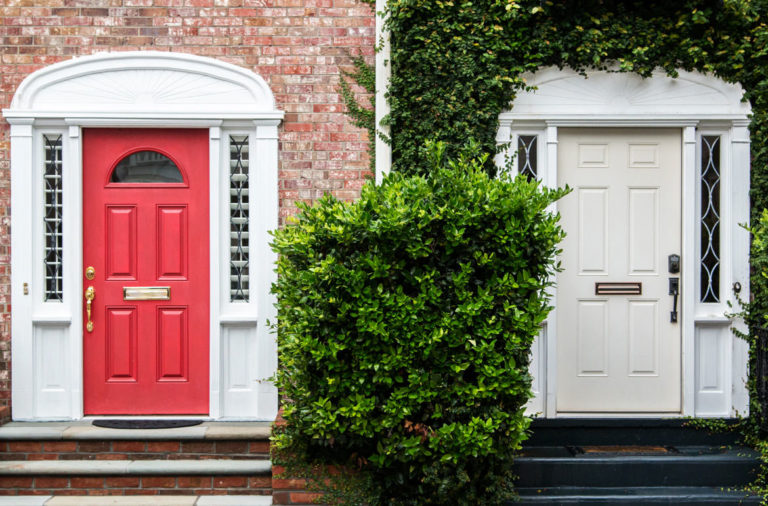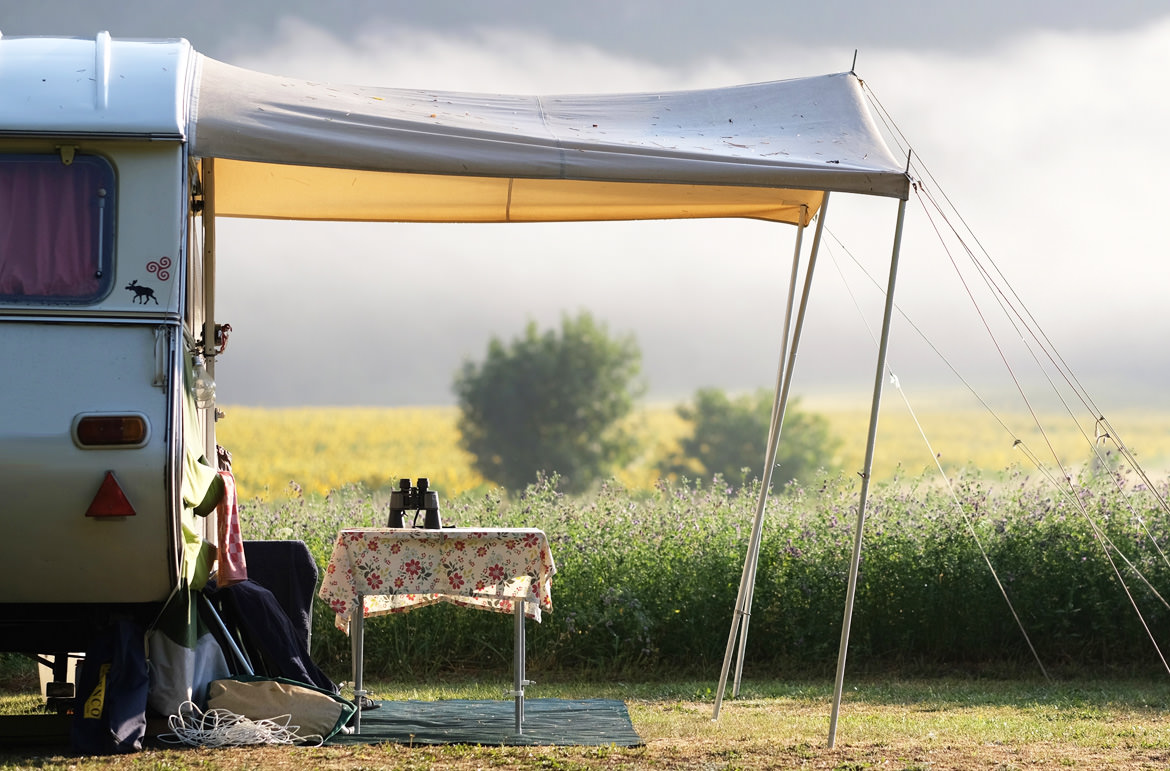
Many companies are now selling caravans that are expandable, with a set up similar to a tiny home or granny flat. Why? Well, if you live in NSW, there is state wide legislation that means that these do not need Council approval, but there are a few “catches” such as in NSW limiting stays to 60 days a year, or 2 days at a time. But there are many other positives we discuss today.
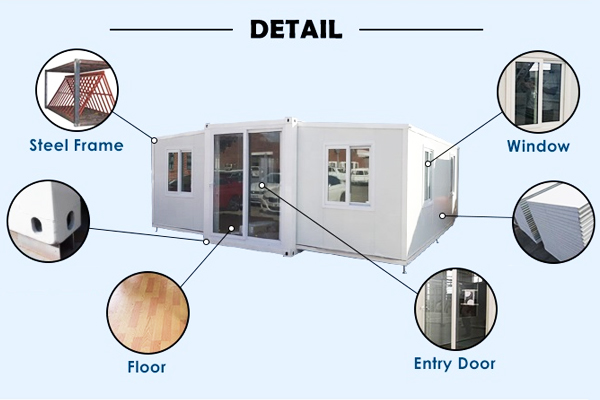
Get in touch with us today to secure the best price on an expandable granny flat
Today I will cover all of these, including:
DON'T PAY A FORTUNE FOR YOUR GRANNY FLAT. Find out how to deal with council and build a granny flat for the lowest cost possible. Learn More.
- How to Surpass Council Approval
- The ‘Must Haves’ – What These Units Must to be Legally Compliant with the Definition of a ‘Caravan’
- How They Can be Used, Including Who Can Live in Them, Where You Can Live in Them, and How Long For
- Can You Rent Them Out?
- If Councils Can Ask You to Remove Them
- If You Can Use Them in Flood or Fire Zones
- If All States Have a Similar Legislation
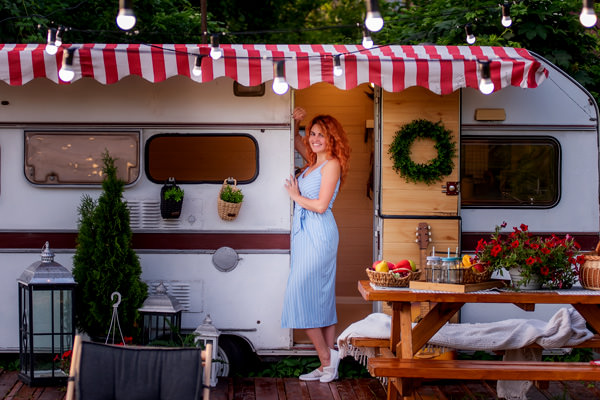
Setting up caravans are pretty straight forward
Do I Need My Council to Approve These?
No – that is the great thing about it – the NSW legislation, which can be seen here, supersedes every single Council in all of NSW. Just follow every rule in this legislation, and Council approval is not required.
However, we have been told by owners of a company themselves that a lot of Councils do not know about the legislation, or are not up-to-date with the latest changes, so they have suggested that you be prepared.
Though the legislation is rather clear and concise, it has been misinterpreted by Councils, so we suggest that you read it thoroughly before committing to a decision as there are specific restrictions to using a Caravan, such as how long you can live in them (discussed below)
Do These Units Need to Be Legally Compliant as a ‘Caravan’?
The legal definition of a caravan is that it has:
- A trailer underneath them, a compliant Chassis and wheels.
- A VIN Number
- An emergency brake.
So, if you are looking to purchase one of these units that you can live in, like a granny flat, you must make sure that it has all of these things, so that it legally complies with the definition of a caravan. If not, you will be purchasing a non-compliant unit with just a trailer underneath. Making them only legally compliant to be a trailer – and you can’t live in one of those. To find out more about Tiny homes vs granny flats, that are on trailers read this post here.
It is also very important they do have the trailer, as that is what makes them a movable structure, and therefore defines them as a caravan.
One thing though that you may find yourself being told by your Council is that the ‘caravan’ has to be registered. This is not correct – it simply has to be a vehicle that is registerable. So, if it is compliant as a caravan, this is considered to be a registerable vehicle. Hence the importance of the points made above.
How Long Can You Live in Them?
This is quite an important part of the legislation to take note of. You will see it in Section 77.
There are generally two ways that people will typically use these caravans. One, that you can see in Section 77:
(1), is that they can be used on a vacant block of land. However, there is a time limit on how long you can stay there – this being no more than 60 days a year and 48 hours at a time.
So that is how long you are allowed to stay in any one place on empty land. If you are wondering who is going to police this – well, that is a very good question. It would most likely be your neighbours, or even people concerned for your wellbeing, rather than Council themselves. Realistically, a Council would not have the time or capacity to police something like this. But could somebody tell the Council, who would then come and check it out? Yes, that is always a possibility.
Moving on to Section 77(b). You can have:
One (1) caravan on land occupied by the owner of the caravan in connection with the owner’s dwelling house. In a lot of the cases it can mean that the owner of the caravan is most likely going to be the owner of the house.
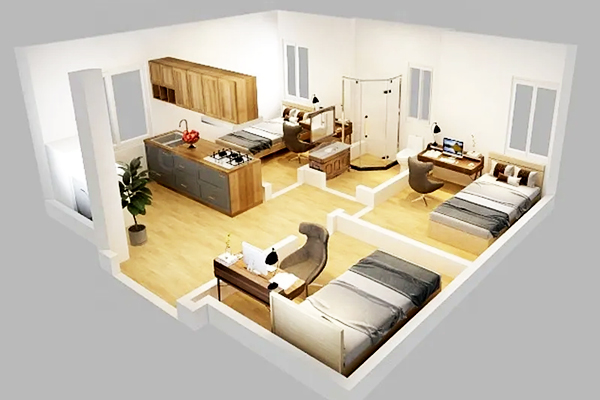
An Expandable granny flat can be set up on site within 2 days
We had a chat with the folks who construct these expandable granny flats and they were able to shed light on this topic for us, with these questions below:
“So who is allowed to live in them?” Well, the legislation itself was changed recently. What once said “members of your immediate family” were only allowed to live in these now says “members of the owner’s household”.
If you look up the legal definition of ‘members of the owner’s household’ in NSW, it makes up a definition with words to the effect of:
- Somebody who has articles of clothing at your house.
- Somebody whose mail is being delivered to that address.
- If your bills are being sent to that house, or
- If you are living at that address two or three times per week.
We can only speculate that before the change was made to the terms “members of your immediate family” to “members of the owner’s household”, that you were housing persons of your extended family, such as a cousin, or a brother-in-law, even though these people are not considered to be members of your immediate family. Or perhaps you were even housing a close family friend. None of these are unusual circumstances. So, the definition has been changed to include these people, thereby making it easier to house them.
Is It Okay to Ask for Rent/Board?
Lets be clear: There is nothing in the legislation that says that you CAN rent these units out.
Therefore, we can only presume that if you are putting a roof over somebody’s head, that it would be okay to ask them to contribute towards rent, or your bills such as water and electricity, or your other daily costs of accommodating them. This is a bit of a grey area in all honesty.
But again, this is only a presumption on our behalf, as there is nothing in the legislation to suggest otherwise.
If I Do Not Get Approval, and Council Wants Me to Remove this Unit, What Lengths Can They Go To?
If your Council decides to be strict, and you wonder what they can do, what lengths they can go to in order to make you remove the caravan, a great example to refer to is the 2018 Camden Council vs VanHomes.
The home owners won the case against the Land and Environment court, as the “mobile structure” was a caravan, not a temporary structure, thereby classifying it as a moveable dwelling that was capable of being used for human habitation in conjunction with the main dwelling.
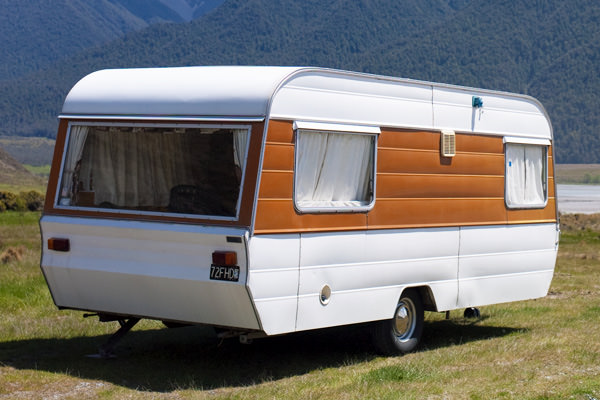
With wheels attached, if you are asked to move one, it won’t be difficult
Having considered all the evidence the homeowners supplied, it was thought undoubtable that the structure was a caravan capable of human habitation, and so defined as a moveable dwelling, and as such, had no need for any development approval, rendering the removal of the caravan on site invalid.
As the family won the case, this set a precedent for all caravans from thereon. Councils generally accept that if a caravan is maintained, in a safe and healthy condition, and is installed on land by the applicants in connection with the main dwelling, they tend to leave them be.
What If I Live in a Flood Zone or Fire Zone?
Your Council may have slightly stricter rules about situations like this, but in many cases you could be fine. Whether you want a movable structure though is totally your decision to make. We can still help you get building approval for your granny flat if you live in a flood zone or a fire zone – see our post here on how this is done for flood risk areas.
Do All States Have a Similar Legislation?
NSW is the only state that has a state-wide legislation.
While other states across Australia have a version of it, NSW is the only state where the legislation supersedes the Councils regulations. This is why a lot of Councils do not know about the legislation, or only know about the older version of it. This is also why they may try to stop you.
What is “Section 68” and How Does it Apply?
In the NSW Consolidated Regulations, Section 68 deals with local government manufactured home estates, caravan parks, camping grounds, and movable dwellings. So essentially, this covers whether it is possible to park your caravan in these places. Section 68 also includes provisions to tap into existing sewer and storm water assets on your land. So you will need to submit a Section 68 if you plan on ever accessing the sewer lines of the property the caravan is placed on.
Points to take notice of are for other structures that are similar to caravans.
Subdivision 1 – Manufactured Home Estates
Section 68 disallows you from using a manufactured home estate without gaining Council approval beforehand.
Manufactured home estates (MHEs) are also commonly referred to as land lease living or resort communities, and are increasing in popularity over retirement villages, as you can choose to buy the home, and rent the land upon which it stands. Many have community facilities on site, such as libraries, swimming pools, lawn bowling, tennis courts, and more.
The definition of a manufactured home on a MHEs is a “movable or relocatable home that is installed in an estate owned and run by a site operator”. Meaning, Council approval is required if you want to use one of these units on one of these sites. Approval may be given, subject to conditions and regulations.
Subdivision 1 – Caravan Parks or Camping Grounds
Section 68 again prohibits you, without getting Council approval beforehand, for developing out caravan parks. Subject to condition, inclusive of those stipulated in the regulations of the NSW legislation, approval can be granted. Failure to obtain approval means that you are committing an offence under Section 626 of the Act, and violation of any conditions of approval means that you are guilty of an offence under Section 627 of the Act.
Subdivision 2 – Other Sites that Require Council Approval
This disables you from installing your caravan on land without getting Council approval beforehand, except when the regulations of the NSW legislation allow your manufactured home to be installed without approval. Meaning, if you refer to our sub-heading ‘How Long Can You Live in Them’, and abide by these regulations, as well as make sure that they are legally compliant as a caravan, you are not committing an offence by not gaining approval. But again, if you wish to set the caravan up on a different site, where Council approval is required, and you do not gain this, Section 626 and Section 627 will mean you are carrying out an offence, as described above.
Gaining Council Approval
Council approval is relatively straightforward:
- The holder of the approval to operate a MHE, caravan park, or camping ground must give the Council written notice of the installation of your caravan within 7 days after it has been completed.
- The abovementioned notice must:
- Specify the site identifier of the dwelling site where the caravan has been set up.
- State the particulars contained on each compliance plate (i.e. license plate number of trailer, VIN number, etc.).
- Accompanying this documentation, there must be:
- A copy of the engineer’s certificate for the caravan, and
- A fully dimensioned diagram of the dwelling site, where the caravan has been set up, adequate to demonstrate if or if not, the following have been compliant with this Part- the setback, density, open space and site delineation requirements.
Conclusion
A caravan that can be used as a granny flat is a quick and easy alternative as they do not require Council approval – you can set them up and live in them immediately.
The only downfall is that there are restrictions on who can live in them, where you can live in them, and how long you can live in them.
If you have one at your house, only a member of the owner’s household can live in it, but it can be used for permanent habitation.
If you choose to live in one vacant block of land, you are limited to 60 days a year, or 2 days at a time.
If you choose to live in them at a “Section 68” site – that is, a site that does require Council approval, such as a local government manufactured home estate, caravan park, or camping ground, Council approval is required and is fairly straightforward. If you do not gain approval prior to parking at one of these sites, you are committing an offence.




